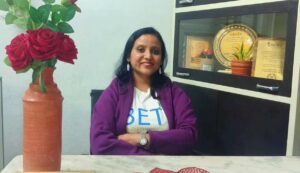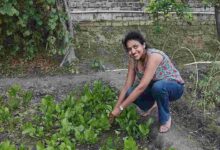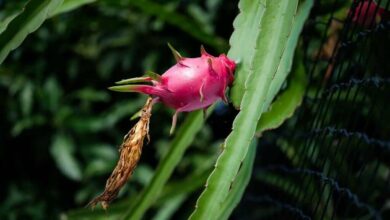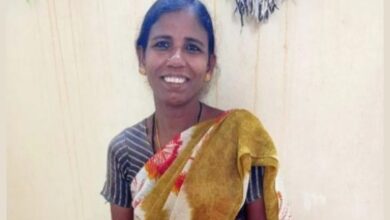Success Story: Know how this woman entrepreneur is leading India’s biotech sector
Success Story: With a Master’s and PhD in biotechnology, Dr. Pooja Dubey Pandey has always had a strong interest in the field because of its enormous potential to address pressing issues in society. Even though she never dreamed of starting her own business while still a student, her innate desire to address urgent problems like pollution and starvation became stronger.

While working with Tata, she saw firsthand the growing number of health issues, particularly among youngsters and cancer patients, that are directly linked to environmental harm and inadequate nutrition. She realized after that event that her scientific knowledge shouldn’t be limited to study articles. It has to reach people and have an impact.
Launching BETi from the Basement
After leaving her first position, Dr. Pandey returned home with a mission and a determination to change the world. She thought about concepts like pollution purification and plant tissue culture, but she decided they were too costly to start. She discovered the potential of mushrooms at that point.
She converted her basement home into a cutting-edge laboratory after realizing that producing mushroom spawn required strong biotech skills and offered a solution to both pollution and starvation. She began creating mushroom spawn from scratch with a little financial boost from her father-in-law and a great deal of personal commitment.
A touching encounter with her kid served as the inspiration for the venture’s name, BETi. Her daughter firmly said that she would prefer another daughter when asked whether she would want a sister or a boy. Inspired by this event, Dr. Pandey opted to call her firm BETi, which stands for Biotech Era Transforming India—with “Era” also being her daughter’s name. Her desire to use biotechnology to revolutionize India with women in the forefront is symbolized by the name.
Developing Health and Wealth with Agri-Waste
Dr. Pandey encountered yet another significant problem when creating mushroom spawn: the handling of agricultural trash. Every year, almost 700 million metric tons of agri-waste are produced in India alone; most of this trash is burnt, causing severe pollution. She found that oyster mushrooms could be cultivated on common agricultural waste, such as paddy straw (parali), making it a cost-effective and ecologically beneficial option for farmers.
In addition, she began providing practical training to farmers and young people in rural areas who lacked knowledge or resources. She gave them the fundamental technical and practical skills they needed to start their own mushroom-growing operations. In this way, she gave farmers a new source of revenue in addition to giving them the authority to handle garbage.
Making Superfoods with Mushrooms to Improve Nutrition
Another issue, according to Dr. Pandey, was that farmers who grew mushrooms were unable to sell them. Since fresh mushrooms are perishable and have a limited shelf life, few people were aware that there were additional types than button mushrooms. She began turning mushrooms into more environmentally friendly and consumer-friendly products in order to get around this.
She developed dried mushrooms, which are then packed without preservatives after being exposed to sunshine to increase vitamin D levels. These may be used in everyday dishes like soups, biryanis, and noodles and kept for over a year. She developed mushroom powders to increase the nutritious content of any dish with only a tablespoon, so increasing mushroom intake even more.
Additionally, BETi unveiled a novel product: mushroom masala seasoning, which is made of moringa, aromatic spices, healthy oils, and mushroom powder. It not only enhances the flavor but also makes it possible for the tongue to absorb Vitamin D, a fat-soluble vitamin. All of these cutting-edge items are now gaining traction and entering more kitchens around the nation.
Creating Biodegradable Products from Waste
Waste continues to accumulate even after mushroom cultivation. However, BETi didn’t end there. Dr. Pandey discovered a method to produce biodegradable products and environmentally friendly packaging solutions using parali and leftover mushroom trash. These items are currently offered for sale on BETi’s website (www.biotechera.com) and shown at shows. This circular concept guarantees that all components of the agricultural cycle are used effectively and that no waste is left behind. Through both online and offline learning, people from Israel, the US, Nepal, and Africa are coming to BETi to study.
Several Sources of Income Supporting a Sustainable Future
BETi’s revenue streams are as varied as its offerings. Sales of mushroom spawn, training courses, dried mushroom products, powdered mushrooms, spices, and biodegradable goods are how the company makes money. The demand for summer-friendly mushroom species, such as milky mushrooms and pink oysters, is now rising across India. Additionally, the firm uses a business-to-business (B2B) strategy to sell to both corporate and individual customers, making it a robust and well-rounded enterprise.
The Difficulties of Female Entrepreneurship
Being a woman scientist and entrepreneur in agriculture is not easy, as Dr. Pandey frankly explains. Despite her training as a biotechnologist, her course curriculum never emphasized commercial acumen. Learning everything from the ground up—including licensing, compliance, sales, and finance—was necessary to enter the world of business.
Because of her gender, she had added challenges. She was often not given importance or credibility in official situations, and gaining credit and trust was challenging. Simultaneously managing the house, motherhood, and business required the highest level of discipline. Nevertheless, she set her own pace with perseverance, dedication, and commitment, and she now proudly manages a successful firm.
Message for Future Female Farmers
According to Dr. Pandey, women are naturally resource-conserving, recycling, and reusing in their daily lives. She exhorts women to follow their innate instincts in the workplace and outside the home. Even if they don’t feel prepared, she urges them to not wait. Success is assured if you put in the necessary time and consistent effort.
“Use your knowledge and experience,” she says plainly. The future lies in sustainability and agriculture. The world is changing, and women can be at the center of this change. Enter the field and keep going until you’ve left your mark.
For sustainable Indian agriculture, Dr. Pooja Dubey Pandey’s journey with BETi Innovative Pvt. Ltd. offers a ray of hope. Through advances in nutrition-dense foods, agri-waste upcycling, and biotech-induced mushroom growing, she is proving that science and compassion can work together to solve real-world issues. Starting with a single basement lab and quickly expanding throughout the nation, it is not about business but about transforming lives.





